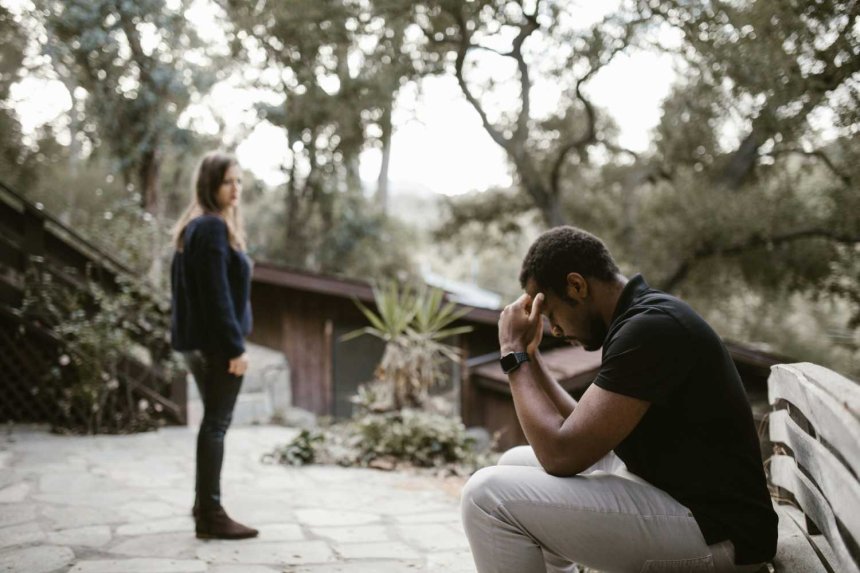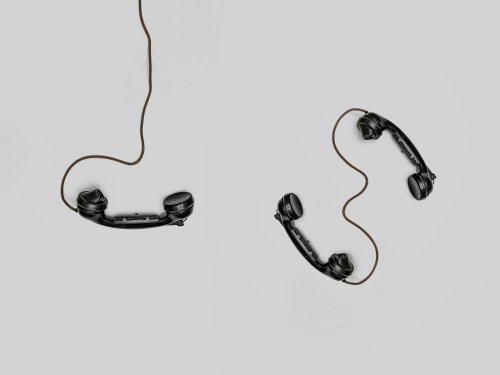10 Questions to Ask Your Ex for Closure and Personal Growth
Discover 10 essentials questions to ask your ex for closure and healing. Gain clarity, understand what went wrong, and move forward with confidence.

Breaking up is painful, but what follows—the confusion, the unanswered questions—can be even harder. If you keep wondering why things ended or how to finally move on, you’re not alone. Finding closure after a breakup isn’t about reopening wounds; it’s about gaining clarity and emotional healing. Sometimes, asking your ex the right questions helps you understand what went wrong and what you can learn from it.
Before you reach out, make sure you’re emotionally ready and clear about your intentions. These 10 thoughtful questions to ask your ex for closure will guide you toward understanding, acceptance, and personal growth—helping you turn heartbreak into a stepping stone for healing.
Why You Need Questions to Ask Your Ex?
After a breakup, your mind naturally searches for answers. You replay conversations, analyze text messages, and try to pinpoint the exact moment where everything fell apart. This is a normal part of processing loss and grief. The questions that linger in your mind are not signs of weakness but rather your brain's attempt to make sense of a major life change.
Some people find closure internally through time, reflection, and personal growth. Others need external validation or clarification to fully move on and forward in their lives. If you fall into the latter category, having a structured conversation with your ex might provide the understanding you need. Remember:
The goal is not to restart the relationship or assign blame
but to gain the vital insights that will help you heal and grow
Understanding what happened in your past relationship and can prevent you from repeating the same patterns in future relationships. It can help you identify your own areas for growth and recognize what you truly need in a partner. This self-awareness becomes invaluable as you move forward in your romantic life.

10 Essential Questions to Ask Your Ex
Below are ten powerful questions to ask your ex for closure that can help you gain clarity, heal emotionally, and grow from your past relationship.
1. What Made You Fall Out of Love with Me?
This question cuts straight to the heart of what you probably want to know the most. Understanding what changed in your ex's feelings can provide valuable insight into the relationship's decline. You might be surprised by the answer; it may reveal incompatibilities you were previously unaware of while you were in that relationship. It may also highlight behaviors you can work on for future relationships.
When you ask this, be prepared to receive honest feedback that might sting. Your ex might mention things about your personality, habits, or how you handled conflict. Now, your job is to consciously resist the urge to become defensive. Remember, you are seeking understanding, not validation. Those are two very different things. Their perspective is their truth, even if you see things differently.
2. When Did You Know Our Relationship Was Over?
Timing matters because it reveals whether the breakup was a sudden decision or something your ex contemplated for a while. Often, one person checks out of a relationship before the actual breakup happens. Knowing when that shift occurred can help you recognize warning signs in future relationships.
This question also helps you understand if there was a specific incident that triggered the end or if it was a gradual accumulation of issues. The answer can prevent you from obsessing over one particular fight or moment. That will, in turn, help you understand the bigger picture of how relationships evolve and sometimes end.
3. Did You Feel Like I Truly Listened to Your Needs?
Communication breakdowns destroy more relationships than almost any other issue. This question helps you evaluate how you heard and responded to your partner's expressed needs. Even if you thought you were being attentive, your ex's perception matters because it shaped their experience of the relationship.
The answer to this might reveal that you missed important cues or dismissed concerns that seemed small to you but were significant to them. This type of awareness is crucial for personal growth. Being a better listener and more responsive partner in the future starts with understanding where you fell short in the past.
4. What Could I Have Done Differently?
This is one of the most important questions to ask your ex because it openly invites constructive feedback. However, asking such a question requires genuine openness to criticism, much like most of the questions on this list (but this one in particular). You are not asking this to argue about what you did right or to shift the blame. You are asking because you want to grow and become a better partner in your next relationship.
The feedback you receive might touch on everything from how you handled conflict to how you expressed affection. Some criticisms might feel unfair, while others might ring painfully true. Take what resonates with you the most and use it as a roadmap for personal development. Discard what does not align with who you want to be. Ultimately, you don't have to take everything into consideration.

5. Were There Things You Never Told Me That I Should Know?
Secrets and unspoken resentments often fester beneath the surface of relationships. This gives your ex permission to share things they held back during the relationship. Maybe they felt uncomfortable discussing topics back then. Or perhaps they tried to protect your feelings by staying silent about their concerns.
Learning about these things can be eye opening. It might explain behaviors that confused you or reveal dimensions of your relationship you never fully understood. This information helps you see the complete picture rather than the edited version you experienced while together.
6. Do You Think We Gave Our Relationship Everything We Could?
With this question, your aim is to explore the effort and commitment from both sides. It acknowledges that relations require work from both partners and invites reflection on whether you both truly showed up. The answer can bring peace if you both agree that you both tried your best, even though the relationship eventually didn't work out.
On the other hand, if your ex reveals they held back or you realize you didn't give your full effort, this creates an opportunity for growth. So, understanding where you could have invested more energy helps you approach future relationships with greater commitment and presence.
7. What Did You Learn About Yourself Through Our Relationship?
This very clearly shows that you are not here to play the blame game, but rather wish to focus on growth. So, this will create a healthier conversation dynamic. When your ex reflects on their own learning, it reminds both of you that relationships serve as mirrors showing us aspects of ourselves we need to develop.
Their answer might also give you an insight into their values and priorities. Hearing how your ex grew or changed because of your relationship can actually be healing. It confirms that your time together had meaning and value beyond the pain of the ending. Even failed relationships contribute to our personal evolution and teach us important lessons about three key things:
- Love
- Compromise
- Self awareness
8. Are There Things About Me You Still Objectively Appreciate?
After a breakup, it is very easy to give in to negative thoughts and focus exclusively on what went wrong. It's easy to forget about the good parts as everything becomes overshadowed by the things that went wrong. This question reminds both of you that your relationship had positive elements worth acknowledging.
Having your ex express appreciation for certain qualities you possess can boost your confidence and self esteem during a vulnerable time. This question also prevents you from harshly viewing yourself as a complete failure in the relationship. Even though it ended, you brought value and positive experiences into your ex's life. Remember this helps you bring a balanced perspective rather than spiralling into self-criticism and shame.
9. How Do You Feel About Me Now?
You might wonder what the point of asking such a question is. But understanding your ex's current feelings provides important information about whether friendship might be possible down the line or if you both need permanent distance.
If they still harbor resentment or pain, maintaining contact will likely prevent both of you from fully healing. If they have processed their emotions or moved to a place of neutrality or even fondness, a future friendship might be realistic.
10. Is There Anything You Want to Ask Me?
At first glance, this may seem like an odd question. But you have to remember that closure is a two-way street. Your ex may or may not have their own unanswered questions that prevent them from moving forward as well. By opening the door for them to ask you anything, you show maturity and fairness. This reciprocity transforms the conversation from an interrogation into a mutual exchange aimed at healing for both parties.
So, be prepared to answer honestly and thoughtfully. Give your ex the same consideration you hope to receive. This mutual vulnerability can create a sense of completion that benefits both of you, allowing you to part ways with greater understanding and a good level of respect.

Moving Forward With What You Have Learned
The ultimate purpose of putting forward questions to ask your ex is not just understanding the past but building a better future. After the conversation, you need to take the insights you gained and apply them to your life. Work on personal growth areas that emerged from the conversation. Develop better communication skills, set up healthier boundaries, or address emotional patterns that sabotaged your relationship.
That said, it's important to keep in mind that closure doesn't always come from external conversations. Sometimes, you find it within yourself through time, introspection, and choosing to let go of what you can't change or understand. Be patient with your healing process and trust that clarity will come when you are ready for it. Forgive yourself wherever needed.
If you found your conversation helpful, express gratitude to your ex for their willingness to engage in difficult dialogue. If it did not provide you with the closure you hoped for, accept that some questions simply might never have satisfying answers. Your peace can't depend on someone else's responses.
Conclusion
Pondering on questions to ask your ex and carrying out this hard conversation can be a powerful tool for healing and growth when approached with the right intentions and emotional readiness. The ten questions I have shared provide a framework for meaningful dialogue that prioritizes understanding over blame and growth over resentment.
Keep reminding yourself that the goal is not to change the past or restart the relationship. The goal is simply to gain clarity that helps you move forward. So, whether you decide to have this conversation or find closure through other means, trust yourself to know what you need. Your healing journey is uniquely yours, and there is no right or wrong timeline for moving on.
Be gentle with yourself as you process whatever answers you receive. Use the insights to become a better partner in future relationships while also recognizing that some relationships are just not meant to last, regardless of how much effort both people invest.
Sometimes love is not enough, and that is okay!
Share
What's Your Reaction?
 Like
0
Like
0
 Dislike
0
Dislike
0
 Love
0
Love
0
 Funny
0
Funny
0
 Angry
0
Angry
0
 Sad
0
Sad
0
 Wow
0
Wow
0















